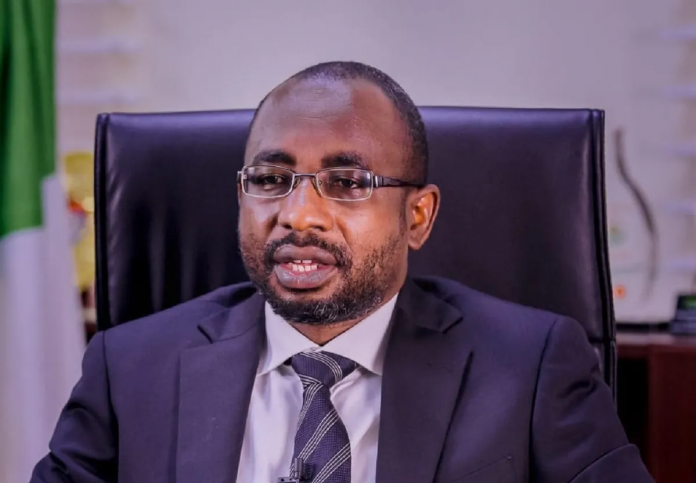
Kashifu Inuwa, the Director-General of the National Information Technology Development Agency (NITDA), emphasized the critical need for Africa to actively participate in the regulation of Artificial Intelligence (AI) to prevent the technology from being skewed towards the interests of advanced nations. He made this assertion while delivering a keynote address on Day 3 of the Nigeria Fintech Week 2024.
Inuwa, represented at the event by Mr. Emmanuel Edet, the Director of Standard, Regulation, and Framework at NITDA, argued that Africa’s involvement in AI governance is vital to ensure that the technology benefits all of humanity rather than just a privileged few. He underscored that AI is not merely another technological advancement; it represents a paradigm shift capable of reshaping every facet of life, from healthcare and education to agriculture and governance.
Emphasizing Proactive Measures
In his address, Inuwa acknowledged the transformative power of AI while also highlighting the unique challenges it presents. “As we witness the rapid deployment of AI technologies, primarily in the Global North, it is crucial that we, the nations of Africa and the Global South, assert our place in this evolving landscape,” he stated. He reiterated that Africa’s participation is essential to ensure that AI serves the interests of all people.
Inuwa pointed out that pressing issues such as data privacy, algorithmic bias, job displacement, and geopolitical competition underline the necessity for a clear, fair, and inclusive regulatory framework. He stressed that the voices of the Global South, particularly Africa, must be at the forefront of these discussions. He stated, “The heart of this regulatory conversation must include the perspectives of the Global South, particularly Africa.”
Global Regulatory Landscape
Inuwa drew attention to the regulatory efforts in regions such as the United States, China, and the European Union, noting that these frameworks often reflect specific local contexts and priorities. He emphasized that Africa’s unique cultural, economic, and social landscapes must inform global AI regulations, particularly since the challenges faced in cities like Lagos, Nairobi, and Johannesburg differ significantly from those in Silicon Valley or the Schengen Area.
Positioning Africa in the AI Space
To position Africa as a key player in global AI regulation, Inuwa stressed the importance of significant investment in local capacity building. This includes developing AI talent, supporting research and development, and fostering homegrown innovations. He called for the creation of indigenous AI solutions that address Africa’s specific challenges in agriculture, healthcare, and education, enabling the continent to contribute meaningfully to global AI standards.
However, he acknowledged the hurdles many African nations face, including limited digital infrastructure, regulatory frameworks, and financial resources. He pointed out that these challenges present opportunities for collaboration, urging for strategic alliances among nations in the Global South to strengthen their collective voice in global AI governance.
What You Should Know
Inuwa’s call for equitable participation in AI regulation aligns with a recent United Nations report, which raised concerns that only seven countries currently dominate AI governance decisions that affect others. The UN Secretary-General’s High-level Advisory Body on Artificial Intelligence stated in its final report, titled “Governing AI for Humanity,” that the countries involved in AI governance for the rest of the world include Canada, France, Germany, Italy, Japan, the United Kingdom, and the United States.
The report emphasized the need for more voices to play significant roles in shaping decisions regarding technology that impacts them, highlighting that the concentration of decision-making in the AI sector cannot be justified. Historically, many communities have been entirely excluded from AI governance conversations that directly affect their lives. Inuwa’s advocacy for Africa’s inclusion in AI regulation reflects a growing recognition of the need for diverse perspectives in this crucial field.










